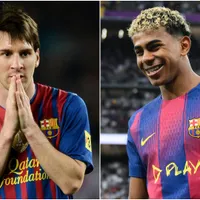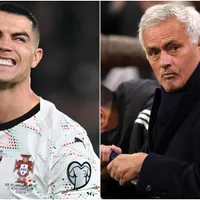In Roger Bennett’s latest offering on ESPNFC.com, Alexi Lalas has once again said some incendiary things about soccer in the United States. In some cases Lalas is on the mark, but as is his custom, he overreaches and defeats his argument by going too far.
For starters, this article was written with the USA’s Gold Cup triumph as a point of reference. Consider that in the tournament Mexico’s most experienced player boasted 11 national team caps coming into the competition whereas the United States had two players with over 100 caps. While Mexico did not have a single player who had previously made a World Cup squad, the cumulative total of the World Cup squads made by the US team was 12, so while we can argue each major nation fielded something less than an “A” team, the USA team was far closer to being an “A” team than Mexico’s.
Let’s go quote by quote and I’ll share my thoughts.
“MLS was born the bastard child of self-loathing and self-doubt. We are apologetic to a fault when it comes to our league. The self-loathing is legendary and in many ways a hindrance. But it’s borne of a culture that always told us we could never measure up to the rest of the world when it came to soccer.”
On this, Lalas is correct. Too many soccer fans in America are dismissive of Major League Soccer’s quality on the pitch without actually evaluating the product objectively. From pure quality on the pitch among starting XIs, MLS is a more balanced league than some of the top leagues in Europe. And generally, top sides can measure up to just about any team in a major European league. However, the depth is just not there, and it is very difficult to see a MLS team constrained by rules to make the league hyper-competitive actually competing over the course of a season in a top European league. But in terms of actually quality, the difference between the starting XI for let’s say Norwich City and FC Dallas isn’t that dramatically different. But the Canaries bench is much deeper and filled with far more quality.
Many Premier League fans thumb their noses at MLS without really knowing, and on that score Lalas certainly has a valid point. By the way, the Premier League itself isn’t necessarily the top league in the world any longer, as results in Europe prove. The level of defensive shape and organization, as well as the frequent bad giveaways and defensive errors when compared to the other three top leagues in Europe all make the Premier League’s quality less questionable. The era when the Premier League was consistently putting two or three teams in the UEFA Champions League semifinals (2005 to 2009) is long gone.
Americans are “mesmerized by foreigners.”
Yes, and that is specifically the fault of Major League Soccer who repeatedly have increased the number of foreign players allowed on squads and have used foreign players as marketing tools, and have also until very recently been unwilling to pay as much money to retain good American talent in the league, which has resulted in them buying washed up foreign talent from second-tier European and South American leagues. Additionally, top US men’s national team players have complained in the past that MLS was unwilling to give them the type of top dollar salaries that they offered foreigners. So Lalas is correct, but don’t blame the soccer watching public in this country. Blame Major League Soccer.
“The league has a long history of foreign imports, from Lothar Matthaus to Rafa Marquez, who have not adapted despite their résumés because the level is higher than they anticipate here. It is a complete fallacy you have to go to Europe to be a better player. It may have helped Michael Bradley, but I don’t believe Landon Donovan’s growth and potential was stunted by staying in MLS.”
This is where Lalas’ argument really falls apart. Matthaus was 39 when he came to MLS and was clearly looking for a paid holiday after a great career in Germany and Italy. Marquez was already being phased out at Barcelona and was signed more as a marketing tool for Red Bull than a serious footballer. Though I have seen many players come from the British Isles and not acclimate, I think much of that has to do with the difficulty of travel in the States when compared to England, and also the quality of management.
On that point, which is the most important challenge facing MLS, the level of technical instruction and management is below that of any western European first division. The reason why players like Michael Bradley leave the US on their 18th birthday is that the tactical and technical instruction for youngsters just isn’t there. MLS coaches tend to be former players who understand the nuances and bizarre rules the league sports. The youth setup itself is poor and, as I have pointed out previously, the US’ results in international youth competitions have declined as more and more kids have come through MLS academies. That may be a temporary “growing pain” for the academy system or a very real sign that the level of coaching in these academies is poor.
To compare Michael Bradley’s development where he is rapidly becoming one of the top holding midfielders in continental football to Landon Donovan, a multiple time failure abroad, is laughable. Bradley is on his way to becoming perhaps the greatest American field player in European club football history. Donovan on the other hand has rarely, if ever, thrived outside his comfort zone. Michael Bradley’s father is a fair coach, to say the least, and he knew what was best for his son, and he had him leave MLS as soon as he turned 18.
“I made a lot more money when I came back because I was seen as a better player. Even though I benefited from that, I know a lot of it is just perception and marketing.”
Alexi Lalas, you were seen as a better player because you were playing against top competition in Serie A.
I also have to once again point out that both Bennett and Lalas fail to mention part of the difficulty MLS’ faces is the lack of relevance it has created outside of its markets. While many soccer fans are working hard promoting the sport in non-MLS markets via USL PRO, NASL, PDL, and NPSL, much of the American soccer press seems ignorant to these leagues, perhaps engaging in a concerted effort to minimize exposure for the sport outside of Major League Soccer. If you want to grow the game in this country, you have an obligation to pay attention to the lower divisions. Some journalists do it, but quite honestly most do not.
Photo credit: Gabriella S. Baetti














